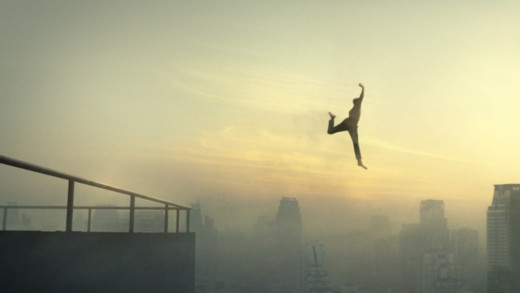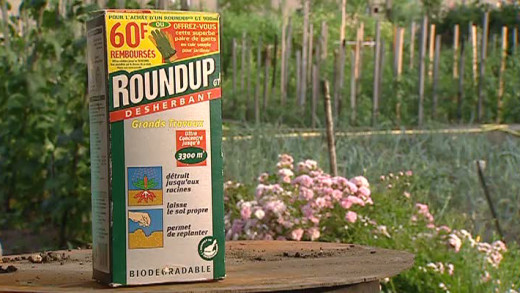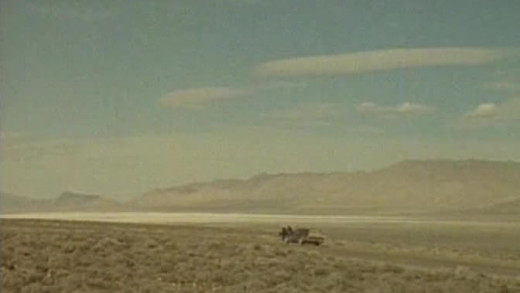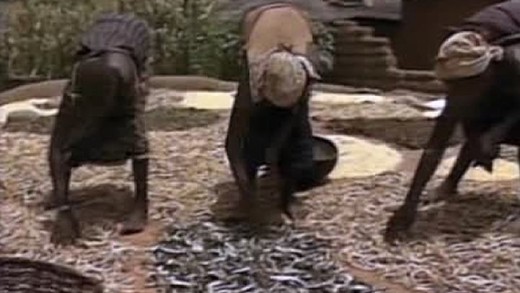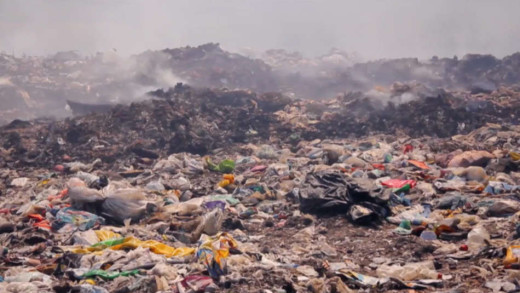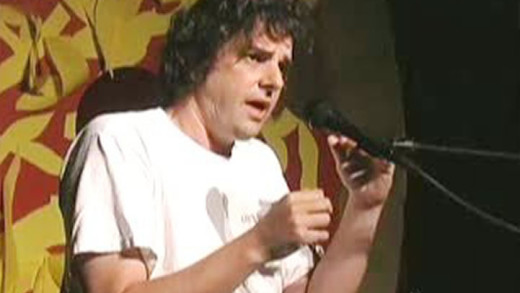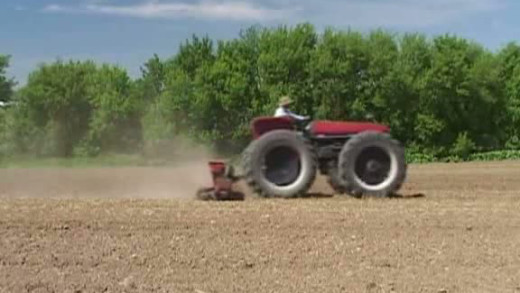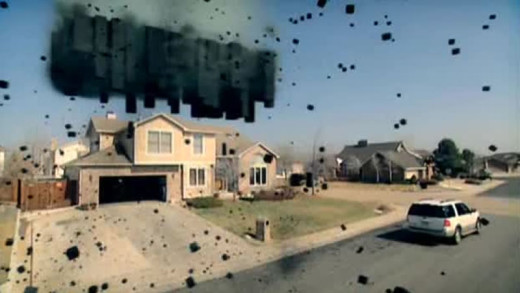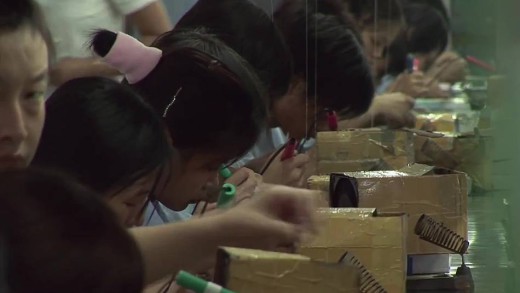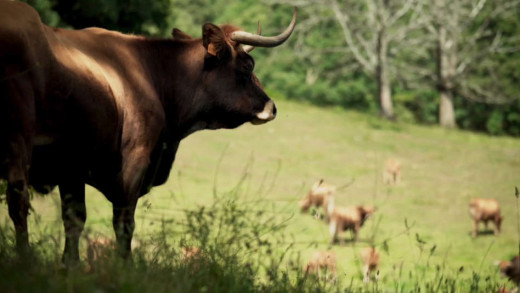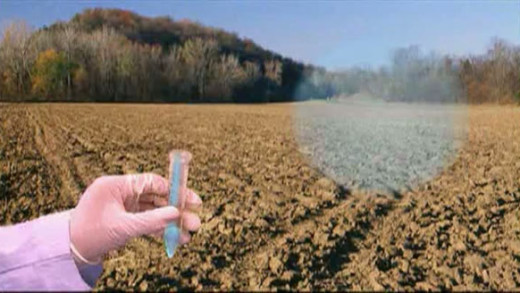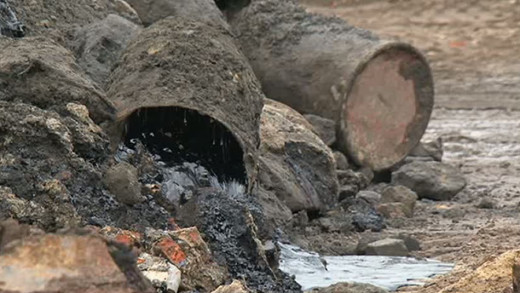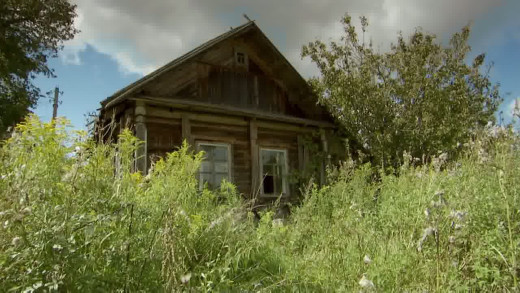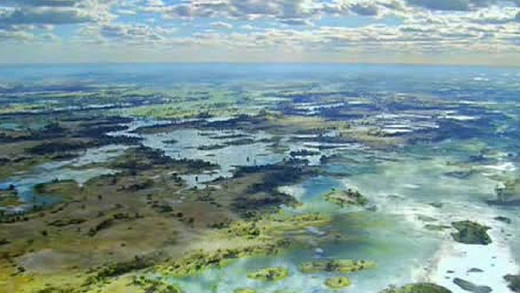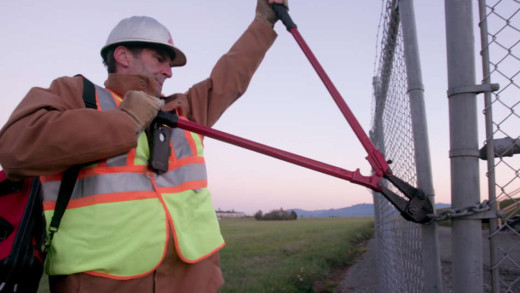Ten years on from his previous film, Advertising & the End of the World, renowned media scholar Sut Jhally follows up by exploring the since-escalating devastating personal and environmental fallouts of advertising and the near-totalising commercial culture. The film tracks the emergence of the advertising industry in the early 20th century to the full-scale commercialisation of the culture today, identifying the myth running throughout all of advertising: the idea that corporate brands and consumer goods are the keys to human happiness and fulfilment. We see how this powerful narrative, backed by billions of dollars a year and propagated by clever manipulative minds, has blinded us to the catastrophic costs of ever-accelerating rates of consumption. The result is a powerful film that unpacks fundamental issues surrounding commercialism, media culture, social well-being, environmental degradation, and the dichotomy between capitalism and democracy.
Monsanto corporation seems to be stopping at nothing: Controlling corn, wheat, soy beans, canola, mustard, okra, bringe oil, rice, cauliflower... Once they have established the norm, they aim to claim all these seeds as their intellectual property, royalties will be collected and enforced by patent law. If Monsanto controls seed, they control food and they know it. It's strategic. It can be more devastating than bombs, it can be more powerful than guns. This is their way to control the populations of the world, and as The World According to Monsanto reveals, it's governments in the cross-hairs also.
From styrofoam cups to artificial organs, plastic is perhaps the most ubiquitous and versatile material ever invented -- no product in the past 100 years has had more a profound influence and presence than synthetics. But such 'progress' has a cost -- no ecosystem or segment of human activity has escaped the strangling grasp of plastic. Addicted To Plastic investigates what we really know--and don't know--about this material. Talking to manufacturers, recyclers, cleaners, scientists and others, Addicted To Plastic shows plastic's toxic legacy and devastating ecological impact, provoking serious questions about health, food and the environment...
John Pilger travels to Reno, Navada in the United States, to investigate the threats facing Pyramid Lake--a reservation of the Paiute people. With water diversion beginning in 1905 by Derby Dam and the lake's very existence threatened, the Paiute sue the conservation department of government--the DOI--to curtail further damage. By the mid 1970s, the lake had lost 80 feet of depth, with extensive impacts to fish and other life of the lake. Further water diversion in the 1970s was driven by a racially-exclusive sportsman's and leisure reserve used for white hunting and recreation near the town of Fallon...
Is the human population going to outstrip the Earth's food supply? The effects of modern agriculture not only lead to a short term food surplus which quickly slipped as population boomed, but agriculture itself causes huge environmental problems such as soil erosion, salinity and chemical pollution—all further illustrating an impossible system in perpetuity. Food or Famine looks at projects in North America, Chile, Indonesia, Africa and India which are participating in a worldwide movement to return to local food growing methods based on the land and healthy ecological principles. The film also examines the worldwide imbalance between food consumption and production, stoking the need to confront the mounting challenges ahead...
Trashed
Trashed sets out to discover the extent and effects of garbage on the natural world. The film travels to beautiful destinations now tainted by pollution, through conversations with scientists, politicians, and people whose health and livelihoods have been fundamentally effected by waste. We see unfettered garbage dumping in Lebanon effecting its own coastline, but also the entire Mediterranean sea; toxic waste mounds set near a school and a future hospital in England; garbage incinerators in Iceland and Japan; the effects of plastic, microplastics, chemical sludge, flame retardants, pesticides, herbicides, dioxins, and other chemicals from waste and their synergistic impacts the world over. Trashed is a call for urgent action to resolve the issue of existing waste, to drastically reduce consumption and output to significantly less harmful levels, while demonstrating how this is already being reached for in many communities around the world.
What if you live in the most destructive culture ever to exist? What if that culture refuses to change? What do you do about it? Derrick Jensen, the author of Endgame responds to these imperative questions and details how industrial civilisation and the persistent and widespread violence it requires is ultimately unsustainable—and what to do about it. Jensen weaves together history, philosophy, environmentalism, economics, literature and psychology to produce a powerful argument that demands attention...
For close to a century, a great tale played out in the tiny town of Caledonia, Illinois. The Real Dirt On Farmer John tells this story of John Peterson, his farm and his family -- a story that parallels the history of American farming. But Farmer John is no laconic, Grant Wood-type with a scowl and a pitchfork. With the help of friends, John transformed his farm into an organic commune flooded with art and music, all in the centre of conformist Midwestern America...
David Attenborough explores just how far climate change is altering our planet--from drought-stricken rainforest to declining polar bears, from flooded homes to bleached coral. Are We Changing Planet Earth? explores the evidence that it is industrial civilisation and the activities of humans which are radically changing the climate...
Who Pays the Price -- The Human Cost of Electronics is a short film that seeks to humanise the largely hidden and anonymous global labour force that enables the ubiquitous technoculture, documenting the harsh conditions in which electronics are made and how this really impacts those people's lives, and the environment. Toxic chemicals, plastics, and sweat-shop working conditions all contribute to the global machine that disseminates digital technologies, hidden in plain sight. Through direct footage of factory workers, interviews with them and analysis of the conditions, Who Pays the Price asks the question of the viewer, and as a call to action to stop the exploitation and toxification of people and the natural world.
Sustenance
A group of friends become curious about the sustainability of their eating regiments. They instigate a challenge, and send filmmaker Yasi Gerami off on a quest to investigate the sustainability of their eating ideologies. The friends come from different backgrounds and live in Toronto, Canada, but the inquiry takes the story of their food around the globe. As Gerami digs deeper, she realises the inconvenient truths not only about the environmental catastrophes caused by our dependence on mainstream food production methods, but also by the cataclysmic social justice impact of our eating habits in the global south. The film unfolds some popular myths on topics such as plant-based diets, healthy and nutritional foods, ethical eating, food politics, industrial agriculture, and how to attain a sustainable food culture. Sustenance helps the viewer discover these themes, prompting the viewer to question where our food really comes from, and how it genuinely affects the health of other people, other species, and ultimately the entire planet.
The Future of Food brings together the many complex issues surrounding the troubling changes that have occurred in the industrial food system during the past decades—genetically modified food, seed patenting, pesticides; and the corporate takeover of the entire food chain, from soil to seed to fork. The issues raised in The Future of Food are more pressing than ever, as the collusion between governments and large multi-national corporations is more visibly on display than ever before—the use and abuse of the legal system, politicking, and privatisation drive this rapacious strangle hold on much of the world's food. The film focuses on unlabelled, patented, genetically engineered foods that have been sold in supermarkets in the United States, unbeknownst to the public, for the past decade. In addition, there is a focus on Canada and Mexico. Also described is the concern about 'terminator' GMO seeds that pose a huge threat to diversity and local food systems. Genetically modified food is as controversial today as ever, and The Future of Food presents a vital educational tool for activists and educators worldwide.
Barbie, H&M jeans, everyday corn--just some of the products recalled due to controls on the use of dangerous chemicals as a wave of legal cases over toxicity is calling manufacturing of certain products into question. The Toxins Return follows the trail from field worker, to customs, to the high street shopper--how much can we trust all these products?
In 1986, a catastrophic nuclear accident occurred at the Chernobyl Nuclear Power Plant in Ukraine. An explosion and fire released large quantities of radioactive contamination into the atmosphere, which spread over much of Western USSR and Europe. Life After Chernobyl uses this event to show how wild nature reacts and survives when the world is suddenly rid of the impacts of industrialisation. Travelling to the site of Chernobyl, animals return, forests regrow, buildings disintegrate into grass -- perhaps saying in a rather horrific way that a nuclear accident is better for the natural world than industrial civilisation...
Following on from the series Planet Earth which looked at various forms of life across the globe, Planet Earth -- The Future highlights the issues of conservation and the future of the environments and species featured in the Planet Earth series. Using interviews with the film-makers and eminent figures from the fields of science, conservation, politics, and theology, the series poses questions around the effectiveness of the environmental movement, and the future of the planet. A lot needs to change in order to ward off catastrophe...
If a crime is committed in order to prevent a greater crime, is it excusable? Is it, in fact, necessary? The Reluctant Radical follows Ken Ward as he confronts his fears and acts on these questions to stop climate change. After twenty years leading some of the most renowned mainstream environmental organisations, Ken witnesses first-hand how ineffective and unthreatening they are. As their efforts fail, and environmental collapse increases in scope and speed, Ken comes to see how direct action civil disobedience is the most effective political tool to deal with catastrophic circumstances. Ken breaks the law, to fulfil his obligation to future generations, to stop the oil economy. By following Ken for a year and a half through a series of direct actions, this film culminates with his participation in the coordinated action that shut down all the tar-sands oil pipelines in the United States on October 11, 2016. The film reveals the personal costs but also the true fulfilment that comes from following one's moral calling, even if that means breaking the law and its consequences. Ken has no regrets.
